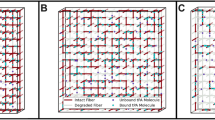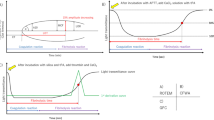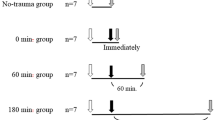Abstract
STUDIES with human fibrinolysis, either induced by pyrogens or appearing during thoracic surgery, together with other observations, indicate that very likely the first phase of an endogenous fibrinolytic reaction in man is the release of a plasminogen activator from the tissues into the blood stream. The question whether this activator can induce lysis of an intravascular clot directly was studied in vitro with human urokinase, a plasminogen activator excreted with the urine, as the enzyme source and human standard clots as substrate.
This is a preview of subscription content, access via your institution
Access options
Subscribe to this journal
Receive 51 print issues and online access
$199.00 per year
only $3.90 per issue
Buy this article
- Purchase on Springer Link
- Instant access to full article PDF
Prices may be subject to local taxes which are calculated during checkout
Similar content being viewed by others
References
von Kaulla, K. N., Proc. Soc. Biol. and Exp. Med., 91, 543 (1956).
Author information
Authors and Affiliations
Rights and permissions
About this article
Cite this article
VON KAULLA, K. Urokinase-Induced Fibrinolysis of Human Standard Clots. Nature 184, 1320–1321 (1959). https://doi.org/10.1038/1841320b0
Issue Date:
DOI: https://doi.org/10.1038/1841320b0
This article is cited by
-
Über die Wirkung von Proteinaseinhibitor-Präparaten (Leberund Parotisinhibitor) auf die extravasale Fibrinolyse, Fibrinogenolyse und Blutgerinnungskonstanten im Menschenblut
Blut Zeitschrift für die Gesamte Blutforschung (1963)
-
Plasma Clot Dissolution by Urea Derivatives
Nature (1961)
-
Die Rolle des Aktivators beim Abbau menschlicher Fibringerinnsel
Klinische Wochenschrift (1960)
Comments
By submitting a comment you agree to abide by our Terms and Community Guidelines. If you find something abusive or that does not comply with our terms or guidelines please flag it as inappropriate.



